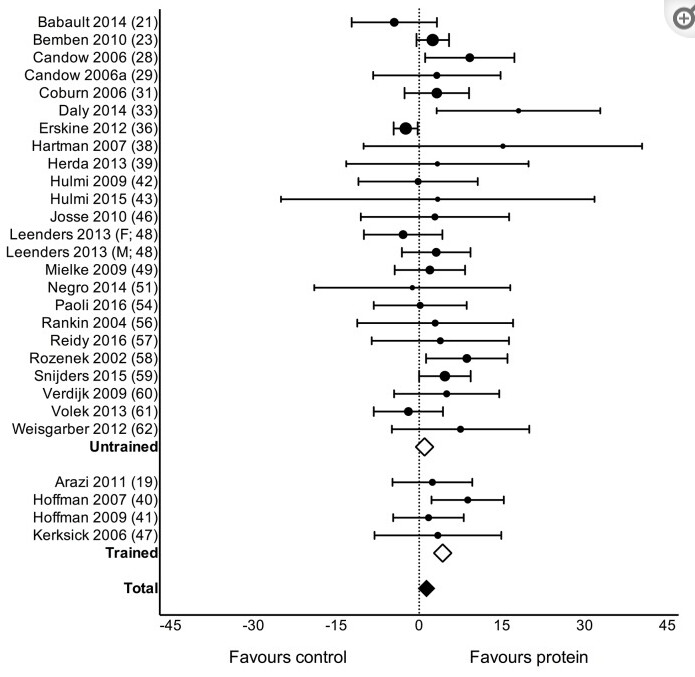Very true, good point. Personally I am eating more fish in place of meat for my lunches and enjoying it. I shouldn’t have suggested you were recommending anything.
Pescatarian (or whatever you’d call your diet) seems like a terrific balance of all the positive dietary recommendations.
How are you thinking about heavy metals in fish? Is this an overblown issue? Or are you eating more of selective fish to avoid this issue? Some people have recommended not eating as much fish because of this.
Same question on microplastics. Overblown or strategy? (Maybe this is not as much a fish issue, bit more for sea salt)
I eat a lot of beef, probably more than most on this forum. But we also eat fish (primarily salmon) 1-2x per week. And when we’re somewhere where the seafood is particularly good (such as Portugal) we’ll eat it 5-7x per week.
Thank you.
I eat fish about 3 times a week. I try to stick to easily available wild caught, high Omega 3 and tasty fish in Costco.
Canned Sardines, Canned Tuna (tested for heavy metals), Salmon, Cod and Seabass… and shellfish - shrimp.
My diet has been constantly evolving based on new information and it’s not static. I feel like after 25 years I am very close to balancing a relatively tasty and maximally longevity increasing combo… I couldn’t do Bryan Johnson raw broccolli, cauliflower, etc. plate . YUCK. I am not that committed.
Agree! No way I’m lowering protein either…. Lol
Is protein discussion based on flawed reviews? See the summation of non-stat sig result to a significant one(A systematic review, meta-analysis and meta-regression of the effect of protein supplementation on resistance training-induced gains in muscle mass and strength in healthy adults - PMC):
The protein research is using FFM as endpoint, which according to Greger could just be water weight, liver or kidney swelling from extra protein, .49 correlation with muscle mass measured on MRI.
Dr. Attia debunks the theory of protein negatively affecting your arteries unless you are a transgenic mouse.
I see his points, but I still think he’s biased and in denial about dietary protein and aging. Even “acute” spikes of mTOR after protein-rich meals becomes “chronic” when you take into account multiple meals per day along with supplemental protein to meet a 1 gram per pound of body weight target. Compare this repeated stimulation of mTOR throughout each day, every day, with the (hopeful) anti-aging effects of suppressing mTOR for a couple of days per/week with a once weekly dose of rapa.
He competely ignores the large body of animal research showing anti-aging effects of protein restriction and individual amino acid restriction (i.e. methionine) because it’s “only animal research” (and inconvenient to his protein fetish), yet he relies exclusively on animal research to tout the likely anti-aging benefits of rapamycin. It just seems like he wants it both ways with mTOR and protein (to “have his venison jerky and eat it too”, if you will).
It’s fairly straightforward IMO, albeit more nuanced, to see that chronic mTOR stimulation via high protein intake is likely bad for aging on a molecular level while having some benefit for muscle growth when combined w/exercise (but even then, how important is all that extra protein when compared to the exercise stimulus itself along with adequate caloric intake?), while suppressing mTOR to some degree is likely very good for aging on a molecular level.
Can we get the benefits of both by doing cycles of high-protein w/exercise followed by low-protein/low-methionine/fasting/fasting-mimicking with or w/out rapamycin?
Ha ha, I like the word play, and, although I think Attia’s interpretation of the study adds useful insight, point taken about his study selection bias on the topic of protein.
I think animal research showing anti-aging effects of protein restriction is reasonably robust, interesting, and should not be ignored as a research direction. Unfortunately, for those middle aged and older, we can’t wait until the issue is resolved definitively if we want to extend our lifespan/health span. So, for me, when I weigh animal research that suggests a longevity advantage to low protein that MAY translate to humans against the human research that shows reductions in sarcopenia/osteoporosis, which DO impact lifespan and healthspan, I’m choosing a higher protein diet for now. Although, I’m not sure that one gram per pound lean mass is needed, I do find it increases my satiety which keeps my fat mass low, which strongly correlates with health span, so there’s that. And I do think protein RDA is way too low.
For the record I don’t find blue zone correlations helpful in resolving this issue. Blues zones research basically finds that if you compare a population that follows a non-process food diet, gets daily exercise or physical activity, is socially connected, and has low stress (blue zoners) they will live longer than a population that eats SAD, does not exercise, is socially isolated, and has high stress (typical developed populations), the blue zone population lives longer healthier lives. However, there are so many confounding factors contributing to blue-zone longevity, not to mention interactions between those factors, that teasing out the impact of a single variable like protein consumption is not possible.
I suspect that by making this a binary issue of high vs low protein or high mTor is bad and low mTor is good, we are missing the nuances in the conversation that would be helpful in resolving the question.
I think you missed the whole discussion on this thread where we discussed specific amino acids and their effects on m-tor and homocysteine levels, because I agree, reducing the diet to simplistic macro manipulation of low vs high protein is as asinine as low fat vs high fat or low carb vs high carb.

